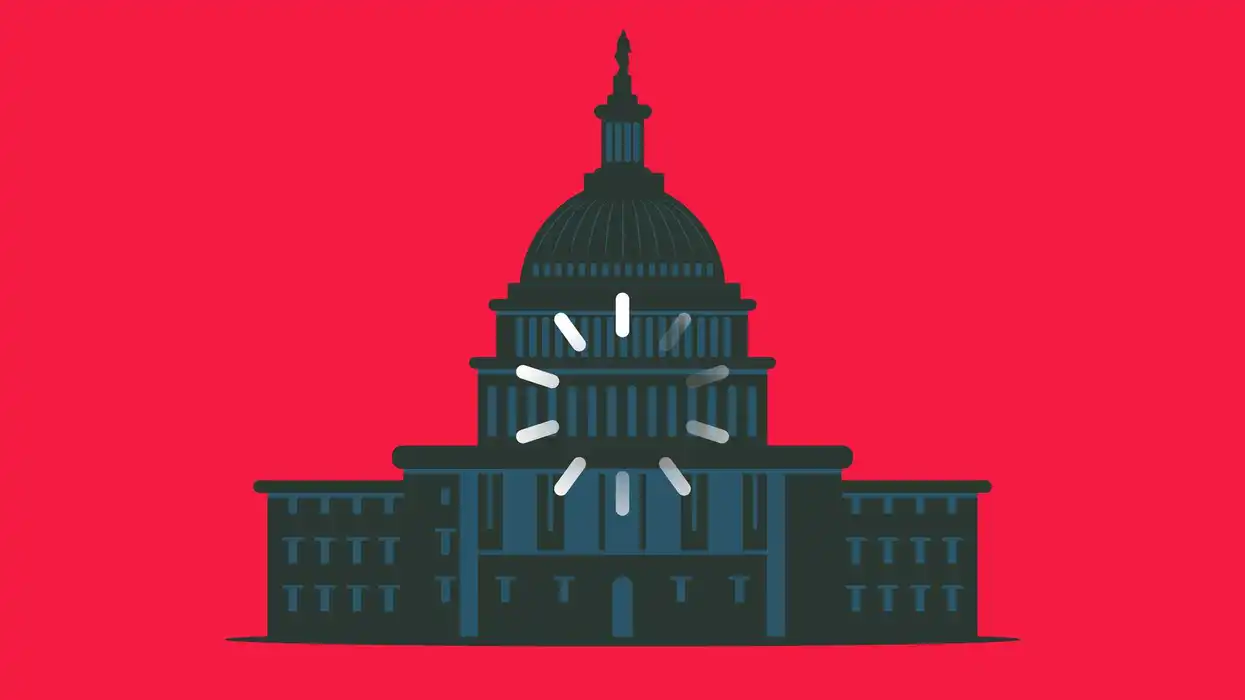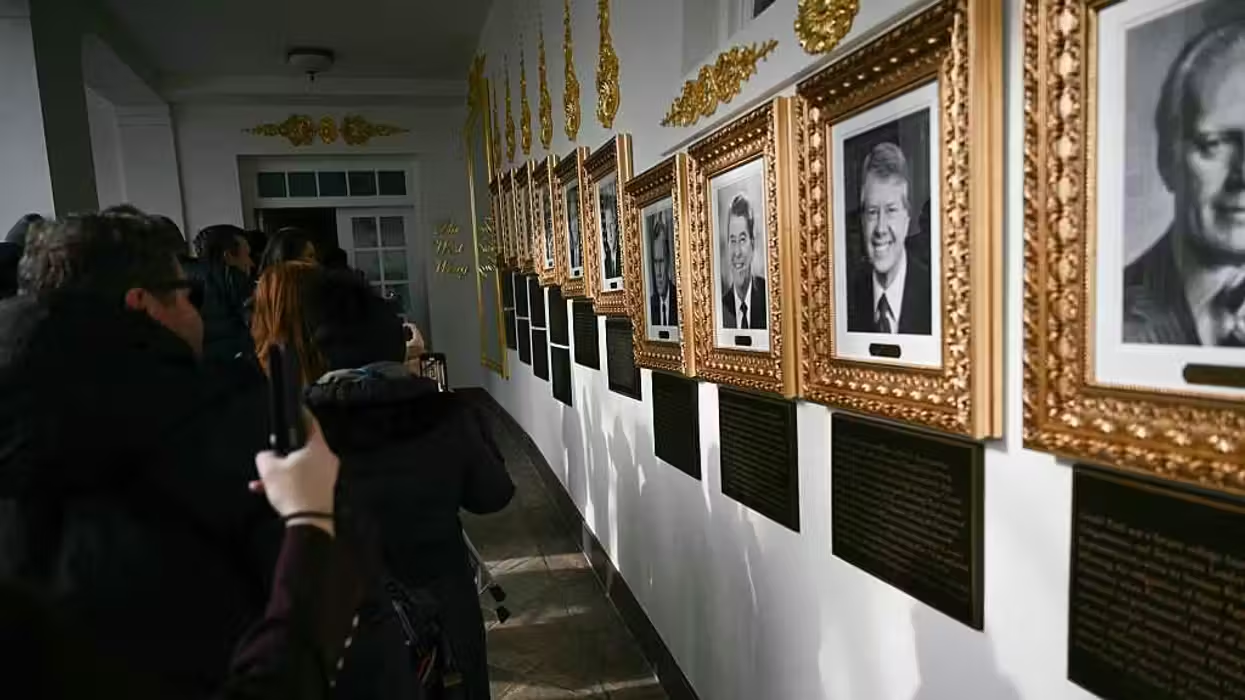As U.S. satellites observed Russian troops gathering near Crimea’s border last month, officials in the nation's capital were shocked that they hadn’t received earlier notice of military action in the area.
 Russian special forces storm the Ukrainian Belbek Airbase on March 22, 2014 near BELBEK, CRIMEA. Russian troops have seized control of Belbek Airbase, one of the last Ukrainian military bases which have not surrendered after the annexation of Crimea by Russia (Getty Images)
Russian special forces storm the Ukrainian Belbek Airbase on March 22, 2014 near BELBEK, CRIMEA. Russian troops have seized control of Belbek Airbase, one of the last Ukrainian military bases which have not surrendered after the annexation of Crimea by Russia (Getty Images)
In fact, prior to Russia's takeover of Crimea, U.S. intelligence agencies intercepted virtually no Russian communications suggesting a possible invasion of the peninsula, according to the Wall Street Journal.
The failure of the U.S. intelligence community to provide Washington with detailed information on Russia’s plans before they were set into motion has many in the nation’s capital worried that the Kremlin has somehow figured out how to elude U.S. eavesdropping, the report adds.
"Even though there was a warning, we didn't have the information to be able to say exactly what was going to happen," a senior U.S. official said told the Journal.
In response to this surprising failure, the U.S. is scrambling to improve its communications-interception efforts. The idea is that the expanded coverage will provide U.S. officials with better information that may help them predict Russian President Vladimir Putin’s next move.
"We have gone into crisis-response mode," a senior official told the Journal.
Still, even in “crisis-response mode,” U.S. officials are worried that Russia will continue to cloak its actions and that troop movements may continue to go undetected.
"That is the question we're all asking ourselves," an official said.
As a result of Russia’s swift and nearly silent takeover of Crimea, the Obama administration is "very nervous," the Journal reported, citing an official familiar with the matter.
"This is uncharted territory,” the official said.
When Russia decided to make its play for Crimea, U.S. intelligence agencies were busy observing troops on Russian soil. Washington hadn't anticipated that the takeover would come from Russian troops already inside the peninsula.
But that's exactly what happened.
A few officials admitted there were some slight inconsistencies between intelligence reports on Ukraine, Russia and Crimea, but they said the reports didn't contain anything substantial enough to suggest a sudden takeover. These same officials also said that the Russian takeover was so swift that there was little the U.S. military and President Obama could have done differently.
This leaves the lingering question: How did Russia manage to pull this off virtually undetected?
“Some U.S. military and intelligence officials say Russia's war planners might have used knowledge about the U.S.'s usual surveillance techniques to change communication methods about the looming invasion,” the Journal reported. “U.S. officials haven't determined how Russia hid its military plans from U.S. eavesdropping equipment that picks up digital and electronic communications.”
The Journal is careful to note that although the U.S. maintains assets observing Russia, most of the Washington's attention is set on the Middle East.
 Russia's President Vladimir Putin attends a congress of the Russian Union of Industrialists and Entrepreneurs in Moscow, Russia, on Thursday, March 20, 2014. (AP)
Russia's President Vladimir Putin attends a congress of the Russian Union of Industrialists and Entrepreneurs in Moscow, Russia, on Thursday, March 20, 2014. (AP)
Further, it’s important to remember that the U.S. had information as early as December indicating that Putin had his eye on Crimea, prompting the U.S. to expand satellite coverage of the area. However, after expanding coverage of Russia and observing initial satellite imagery, U.S. officials concluded that the Russian movements around and inside Crimea were typical military exercises.
They were mistaken.
By Feb. 26, U.S. officials had changed their minds and were certain Russia was going to make a play for Crimea -- but they still lacked corroborating evidence of a possible invasion.
"We didn't have someone [from the Russians] saying: 'Let's do this,' " a U.S. official said, stressing that they never intercepted early communications from Russian officials pointing to a takeover of Crimea.
Now, the annexation of Crimea complete, U.S. officials believe Russia was able to move as quickly as it did because it had already slipped small bands of highly trained soldiers into the area, somehow avoiding detection by U.S. intelligence agencies.
Of course, it’s possible that the U.S. didn’t intercept any invasion communications because there weren’t any. That is, the takeover could have been a last-minute decision from Putin that was known only by him and his closest advisors.
“Some U.S. and U.K. officials believe that Russia's takeover plan was drawn up in advance and ready to go, reducing the need to discuss it,” the Journal reported.
Then again, as certain U.S. officials fear, it’s possible that the Russians have been given information on how to avoid U.S. spying.
Obama on Feb. 28 issued his final public warning against Putin. It was too late: Russia had already seized control of Crimea, its sights set on the peninsula's important naval installations. On March 18, Putin signed a treaty declaring Crimea a part of the Russian Federation, the latest development in a takeover that apparently caught the U.S. off guard.
"This is the kind of thing young military officers are going to be reading about in their history books," an official said.
A spokesperson with the CIA did not immediately return TheBlaze's request for comment.
--
Follow Becket Adams (@BecketAdams) on Twitter

 Russian special forces storm the Ukrainian Belbek Airbase on March 22, 2014 near BELBEK, CRIMEA. Russian troops have seized control of Belbek Airbase, one of the last Ukrainian military bases which have not surrendered after the annexation of Crimea by Russia (Getty Images)
Russian special forces storm the Ukrainian Belbek Airbase on March 22, 2014 near BELBEK, CRIMEA. Russian troops have seized control of Belbek Airbase, one of the last Ukrainian military bases which have not surrendered after the annexation of Crimea by Russia (Getty Images)






